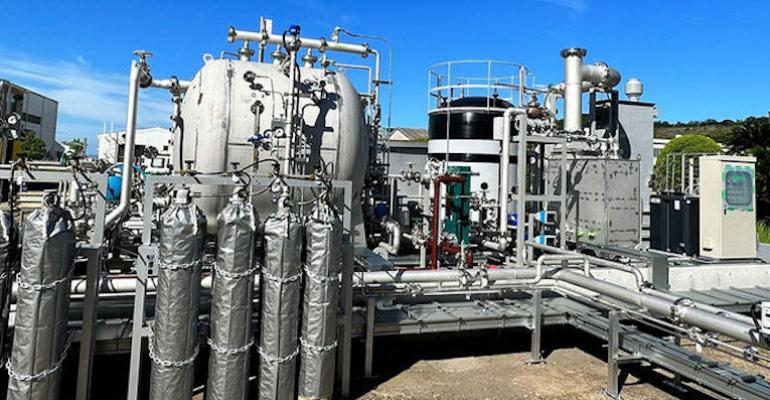The unit of Mitsubishi Heavy Industries (MHI) is developing the Mitsubishi Ammonia Supply and Safety System (MAmmoSS) and has begun demonstration testing of the Ammonia Gas Abatement System (AGAS), a MAmmoSS subsystem that will safely treat surplus ammonia.
The “ammonia-ready” label is starting to be seen on an increasing number of recently announced shipbuilding contracts.
Using a demonstration facility at the Nagasaki District MHI Research & Innovation Center, Mitsubishi Shipbuilding will conduct demonstration tests of the AGAS processing performance under various scenarios simulating onboard ammonia operations.
In addition to AGAS, MammoSS comprises several other subsystems, including a high-pressure/low-pressure ammonia fuel supply system (AFSS) and an ammonia fuel tank system.
A key feature of MAmmoSS is that each of these subsystems can be modularised, allowing Mitsubishi Shipbuilding to provide the optimal modular configuration in a package for onboard plants consisting of multiple engines and boilers.
Mitsubishi Shipbuilding said that “it will bring together its technologies and expertise in ammonia handling accumulated through its history of building transport carriers, and as a shipboard ammonia handling systems manufacturer, to supply products with an emphasis on safety and reliability.”
It adds that, as a maritime system integrator, it will “contribute to the further development of marine logistics and the reduction of its environmental impact on a global scale by providing shipbuilding engineering services for ammonia-fuelled vessels, along with construction support and other services to meet customer needs.
Copyright © 2024. All rights reserved. Seatrade, a trading name of Informa Markets (UK) Limited.
Add Seatrade Maritime News to your Google News feed.  |

